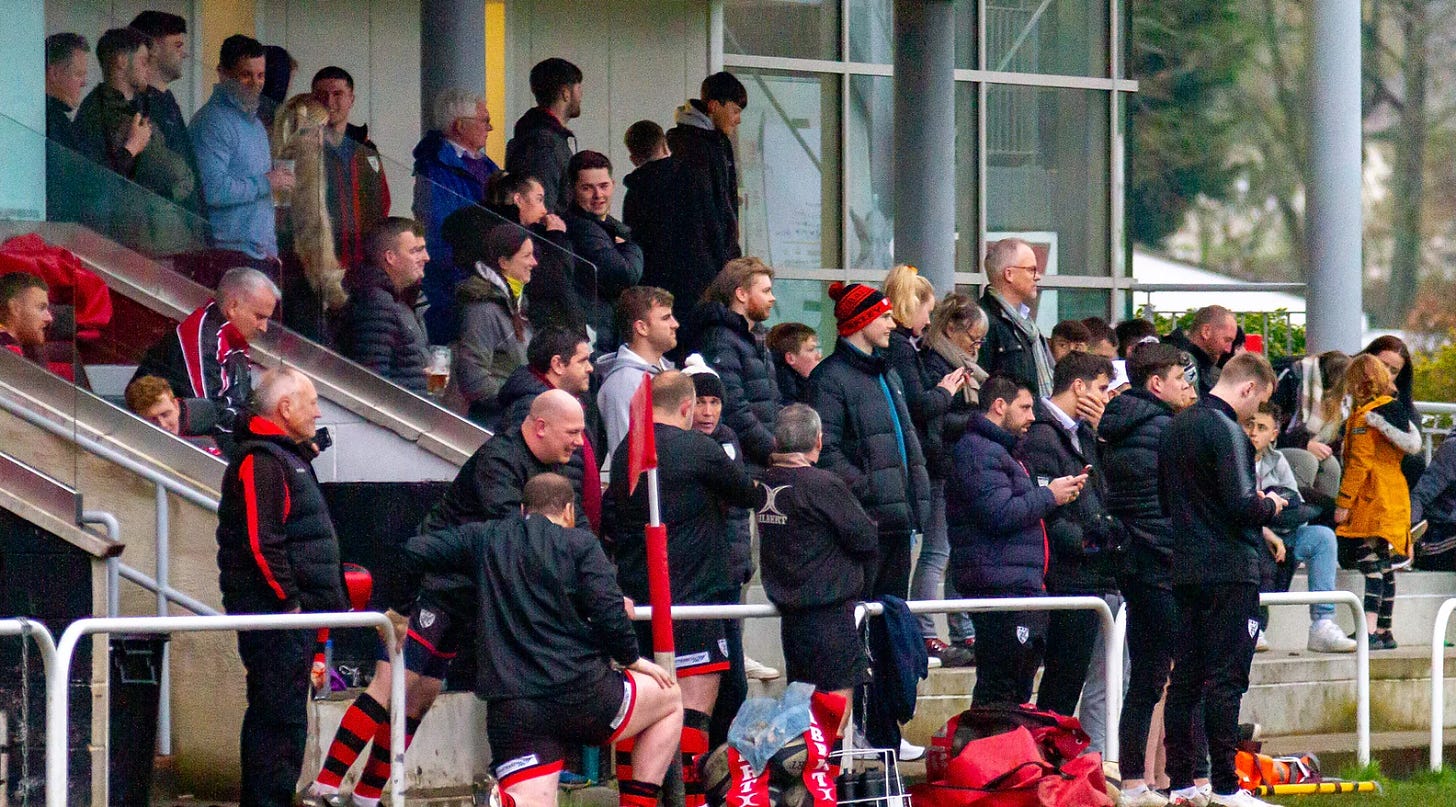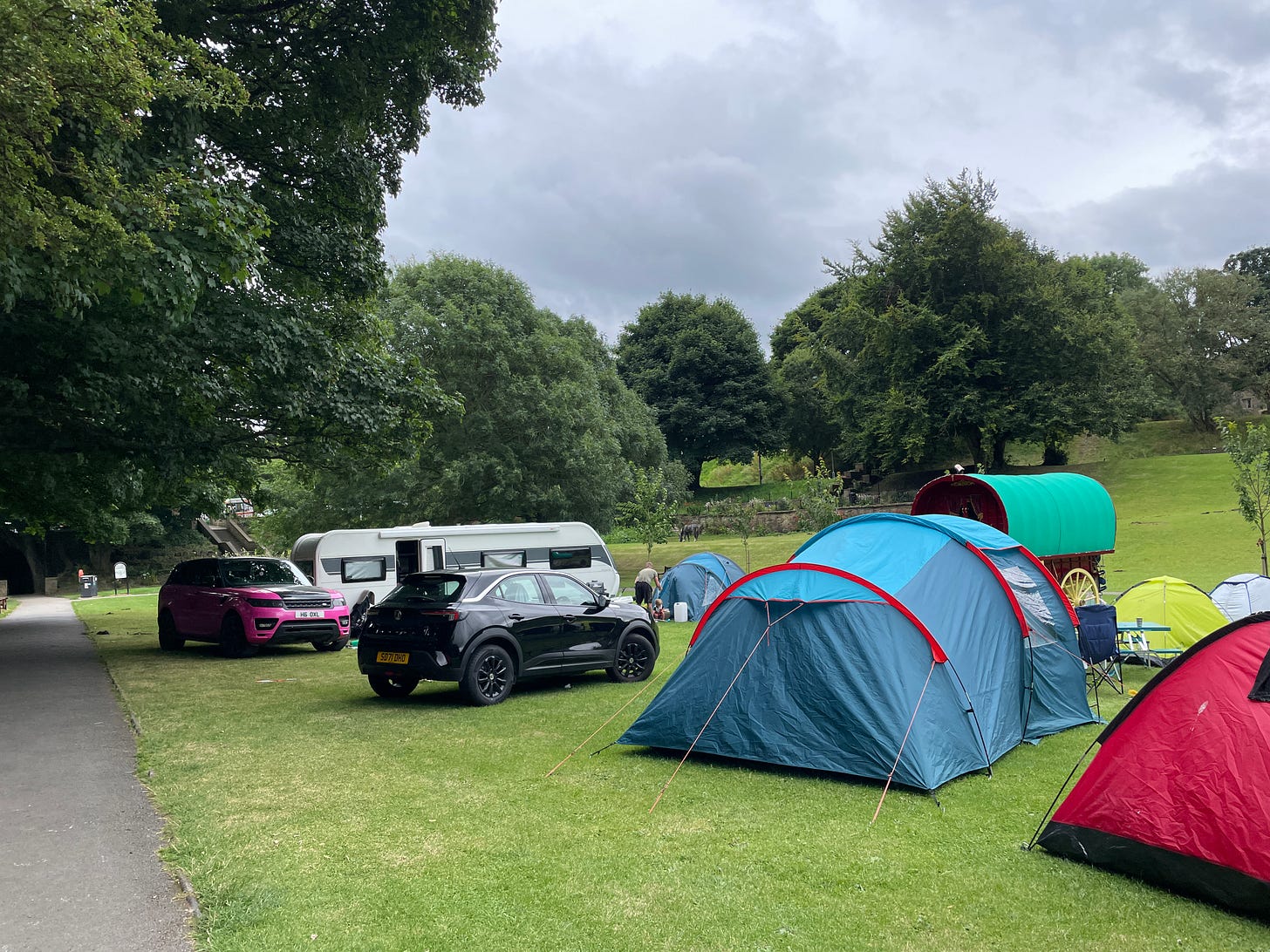How about we NOT publish all the data
The Ilkley Journal roundup 🗞️
By Narinder Purba
Truth is it’s hard being a startup news organisation that specialises in slow journalism. To stay relevant, to get noticed on social media, to be front and centre of the people we want reading out stories, you have to publish regularly and balance that with resource on the kind of thing we want to be doing (which sort of gets pushed to the side).
Is it easy? Nope. Is it worth it? Absolutely. In a day and age when the eccentric owner of one of the biggest social media platforms – call it X, we still call it Twitter – shares a post by one of the co-leaders of the far-right British First party that looks like she is responding to a Telegraph article that suggests the prime minister was considering sending rioters to detainment camps in the Falklands (completely made up we hasten to add), there’s an ever greater need for news organisations like us to hold power to account and ensure that there’s always a quality alternative to the cesspit of social media and publications that play fast and loose with the facts.
So, we battle on. The best is yet to come.
NEWS IN BRIEF 🚨
Drive-through coffee shop gets the green light
An application for a drive-through coffee shop to be built on the site of the Original Factory Shop in Ilkley has been approved.
Members of Bradford Council’s Area Planning Panel for Keighley and Shipley signed off on the plan, which will see the discount department store demolished on the northern edge of Ben Rhydding.
According to a council report, “163 letters of representation were received and a petition against the development of 61 signatures”.
One of those objecting said that “residents are likely to be disturbed from the associated additional traffic, light, noise and activity at the site”, with another saying that the development of a drive-through coffee shop would have a detrimental impact on the value of nearby properties.
Some of those in favour of the redevelopment said that a new building would deliver “a better impression on the approach to the town centre” and that the coffee shop would very “unlikely to be a destination in its own right”.
Ilkley ‘one of the most desirable places to live in the UK’
Ilkley has been named as one of the top 100 desirable places to live in the UK, with the West Yorkshire town achieving a ranking of 23.
It was noted for its beautiful scenery, independent shops, cafes, schools, and friendly community.
"Our survey reveals a growing interest in locations that combine the tranquillity and space of rural areas with the convenience and vibrancy of city life,” said a spokesperson for Calculator.co.uk, which carried out the survey.
In 2022, Ilkley was named as the best place to live in the UK by The Sunday Times.
Ilkley Rugby Club is on the lookout for a match report writer
Love your rugby as much as you love writing? Well, Ilkley Rugby Club (IRFC) wants to hear from you.
With match reporters John Hope and Sean Crannigan “retiring their notepads and pens”, a number of opportunities have opened up for individuals to cover the Dalesmen in action. The IRFC said:
“As a club we are incredibly grateful for their commitment week in week out and their fantastically written reports.
“For the upcoming season, we are looking for a team of match report writers that can cover home and away matches.”
If you are anyone you know is interested, get in touch with IRFC chairman Andrew Munro here.
Burley-in-Wharfedale park awarded green flag again
A park in Burley-in-Wharfedale has been awarded a green flag from Keep Britain Tidy for the second year in a row.
Grange Park was recognised for its role as a quality and “vital green space” for the community, one that “brings people together” and provides opportunities for them to live healthier lifestyles.
“I would like to congratulate everyone involved with Grange Park in achieving a Green Flag Award,” said Paul Todd, Keep Britain Tidy’s Green Flag Award scheme manager.
“The staff and volunteers do so much to ensure that it maintains the high standards of the green flag award and everyone involved should feel extremely proud of their achievement.”
Bradford Council launches legal proceedings to remove travellers
Bradford Council has begun legal proceedings to enable it to regain possession of part of Ilkley Riverside Gardens, where travellers have set up camp.
One of its officers was deployed to the park to assess the situation, finding a number of vehicles, tents and horses on part of the field that is close to the play area.
West Yorkshire Police added that NPTs have been conducting patrols and that it is continuing to liaise with its partners at the council.
“The mess which they have already caused, just in the last day or so via campfires and horse manure is completely unacceptable,” said Robbie Moore, the Conservative MP for Keighley and Ilkley.
THE LEAD 📰
Robbie Moore and selective transparency
To put it bluntly, there is a lot of shit in our waters. You can pretty much blame private water companies for this because they’re failed miserably to do what it is they’re supposed to do. Which is why, following a recent investigation into this literal shit show, Ofwat has recommended that three of them, Thames, Yorkshire and Northumbrian Water, be slapped with a hefty £168 million fine (aka we’ve had enough of your shit).
You can also blame politicians for this shittery (last one, we promise), as the Guardian noted in a recent editorial, which also shined a spotlight on how peculiar our approach to water provision is compared to the rest of the world (90% of countries run state-owned operations):
“The decision to put water – a natural monopoly – in private hands defied the Thatcherite logic of competition and efficiency. There was never any possibility of pitting rival companies against each other to raise standards. No other water supply is competing for a household’s business.”
Monitoring storm overflows, which should only kick into action “under strict permit conditions”, is one of the ways that water companies are held to account. The good news is that as of late last year, every single storm overflow across England’s water network is now being monitored, compared to just 10% in 2007.
Responding to this achievement, the then environment secretary, Steve Barclay, said:
“The wealth of data collected from these monitors will ensure that we know the full extent to the problem – increasing transparency, revealing the worst-offending overflows, and enabling regulators to hold polluters to account.”
Yet, according to a recent investigation by Zach Boren at Greenpeace Unearthed, which was also covered in The Times, it appears that interpretations of transparency can get a little subjective at times. A FOI request by Boren, which was initially rejected until an appeal and a change of government resulted in a rethink, suggests that Robbie Moore, the Conservative MP for Keighley and Ilkley and formerly minister for Water and rural growth (with responsibilities that include floods water resources and waste) tried to prevent the Environment Agency from publishing key findings that would show there had been a significant increase in the number of sewage spills.
“Minister Moore does not want this data released without his approval,” emailed a member of his private office to the agency, “And [he] is not content with the black box (total spills and total hours split) data being released into the public domain as is.”
Another email, part of a series of exchanges between the Environment Agency and Moore’s office, doubled down:
“[The minister] would like the portal to be published WITH average spills per overflow, the percentage of overflows that have monitors and WITHOUT total hours and total hours spill for the portal.”
The argument given was that the increase in sewage spills was somewhat misleading, as previous data was less robust on account of their not being full coverage of storm overflows (which is, as noted above, is now in place). That supposed logic didn’t sit easy with Philip Duffy, the chief executive of the Environment Agency, who described it as a “highly counterproductive” approach that would in fact be more damaging. He said:
“The NGOs will tot up the numbers and accuse us of trying to cover them up. It will damage the EA and it will damage the government.”
It was an odd response from Moore’s office – and still unclear what the motivation was – because context would always be given. And it was. On publishing data documenting the frequency and duration of spills from storm overflows for 2023, which showed a 54% increase in the number of sewage spills compared to 2022, the Environment Agency explained that intense rainfall (it was the sixth wettest year on record according to the Met Office) partly contributed to the increase in spills, as did the increase in monitoring.
“On average each overflow operated more times in 2023 than it did in 2022. That is simply not good enough,” the agency said earlier this year. “However, it is important to note that heavy rainfall does not affect water companies’ responsibility to manage storm overflows in line with legal requirements.”
Moore has yet to respond to Greenpeace Unearthed’s findings, although he has previously defended criticism levelled against him on his voting record with wastewater, stating that “no MP voted for sewage to be dumped into rivers” (this was on the back of what he called a “pathetic political stunt” by the Ilkley chapter of Extinction Rebellion).
According to The Work For You, on environmental issues, Moore “has consistently voted against improving water quality”. For instance, in 2021, in line with his party, he voted against “requiring improved sewerage systems and against requiring a reduction in the harm caused by untreated sewage discharges”.
Ilkley Clean River Group described reports of Moore attempting to control what kind of data relating to sewage spills should be made public as concerning, adding:
“There were more 'spills' (raw sewage discharges) in 2023 counted as monitoring improved, which contributed to a small percentage of the increase (about 20–30K of 464K) – but that's not the point.
“The public must know the extent of the pollution of our rivers and seas and Robbie Moore MP was attempting to make this opaque. As the local campaign group, and leading place nationally for trying to secure water quality, we scrutinise the data, so we would have picked up that the data was missing. Shocking.”






